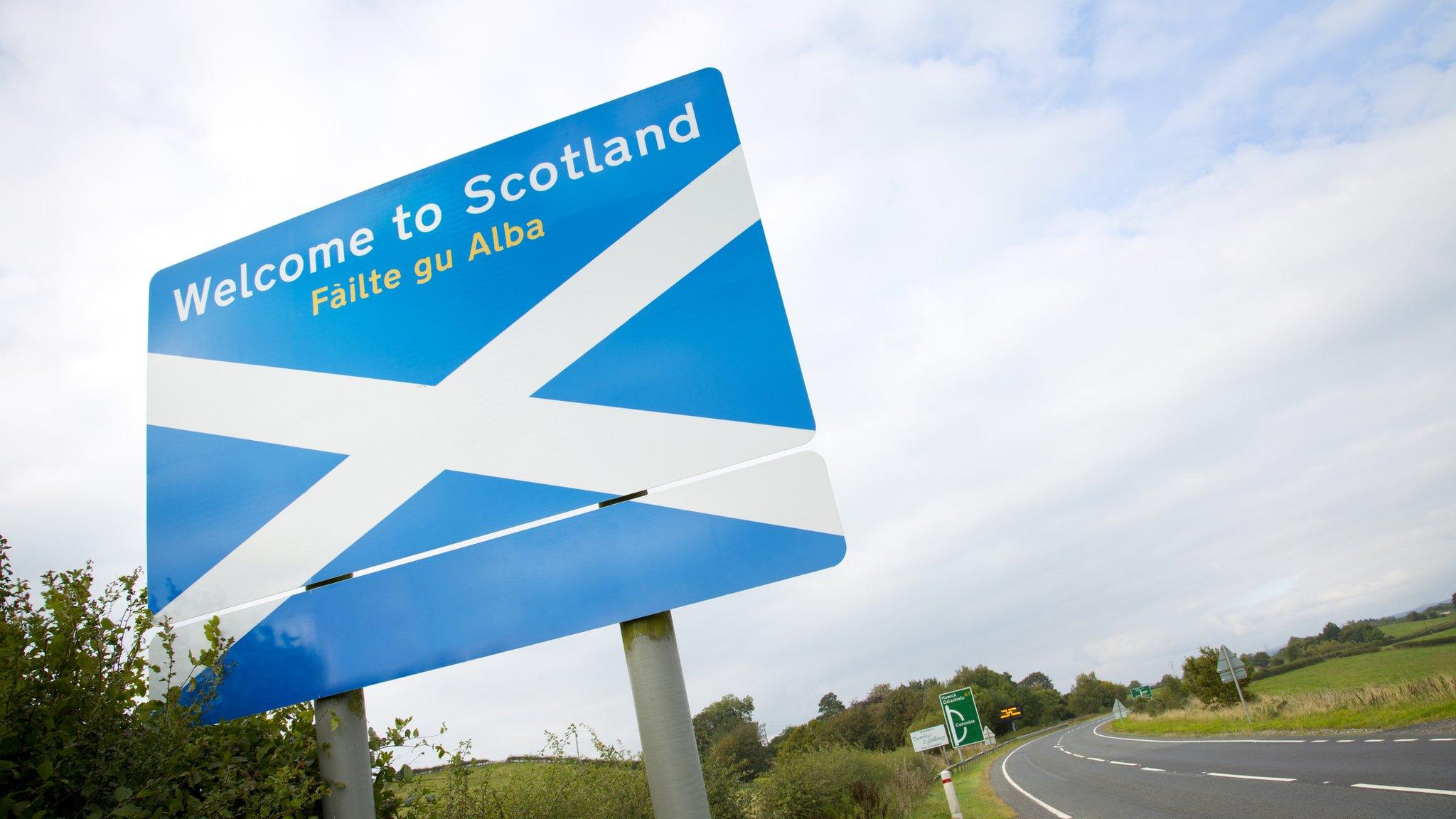MSPs call for separate Scottish immigration deal over Brexit
- Published
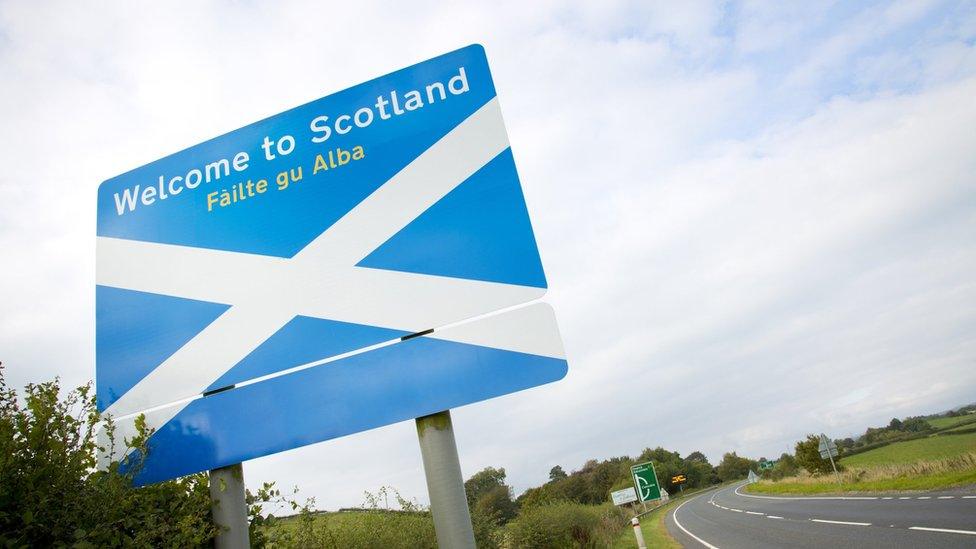
MSPs from the cross-party group want a "differentiated" immigration settlement for Scotland
Holyrood's Europe committee has called for Scotland to be allowed its own separate immigration deal after Brexit.
The committee, which includes representatives of all Holyrood's parties, said there were "acute" risks for EU migrants living in Scotland and called for a "differentiated" solution.
The call follows a similar one made by a cross-party group of Westminster MPs.
The UK government has pledged to discuss the devolution of additional powers as the country leaves the EU.
But ministers had previously said they were prioritising an immigration deal that worked for the whole of the UK over any local visa arrangements.
The Scottish Parliament's culture, tourism, Europe and external relations committee has spent most of the parliamentary term so far focused on Brexit, and has already produced one report summarising views, external put forward.
Members on the committee said Brexit "poses a major challenge" for the 181,000 EU migrants living in Scotland, as well as the position of Scots living in Europe.
They said Scotland's economy could suffer if it no longer had access to European workers who are "a crucial part of our labour market".
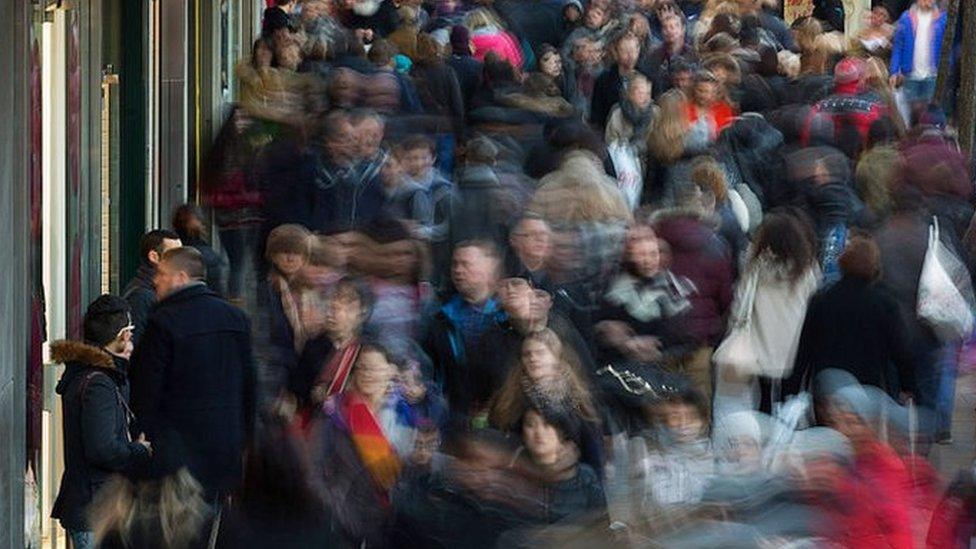
The Scottish government and local councils want to increase immigration to offset the country's aging population
The report reads: "The evidence that we have collected shows that the demographic risks for Scotland of a reduction in the number of EU migrants are more acute than for the UK as a whole.
"This leads us to conclude that there has to be a bespoke - or differentiated - solution for immigration policy in Scotland in the future. The committee also recognises that there may need to be a bespoke solution that can respond to skills or demographic needs in other parts of the UK."
Committee convener and SNP MSP Joan McAlpine said EU migrants had been left "effectively living in a state of limbo while they wait to hear what will happen to them after Brexit".
Speaking on the BBC's Good Morning Scotland programme, she added: "In Scotland we need skilled workers and sectoral workers, but we also have this demographic challenge that you don't see in other parts of the UK.
"The migrants that have come here are of working age in the main, they have children here, and that helps address the fact that we need more working age population.
"It is really important going forward, because Scotland of course depends for a large part of its budget on the tax receipts of people earning money."
'Broken promises'
The committee's deputy convener, Labour's Lewis Macdonald, added that the report "presents strong evidence of the risks facing key sectors of our economy without the continued access to the vital source of labour that EU citizens currently provide".
Two Scottish Conservative members of the committee, Jackson Carlaw and Rachael Hamilton, said the report did not reflect their view on immigration policy in Scotland.
They said the Tories preferred a "sectoral approach to immigration - not a geographic one".
Ross Greer, Scottish green MSP, pointed out that both a Holyrood and a Westminster committee agreed control of immigration be devolved to the Scottish Parliament.
He went on: "Significantly, we also had leading Leave campaigner Michael Gove promise that immigration policy 'would be for Scotland to decide' in the event of Brexit.
"Voters in Scotland are becoming accustomed to broken referendum promises, but this one might end up being the straw that breaks the camel's back."
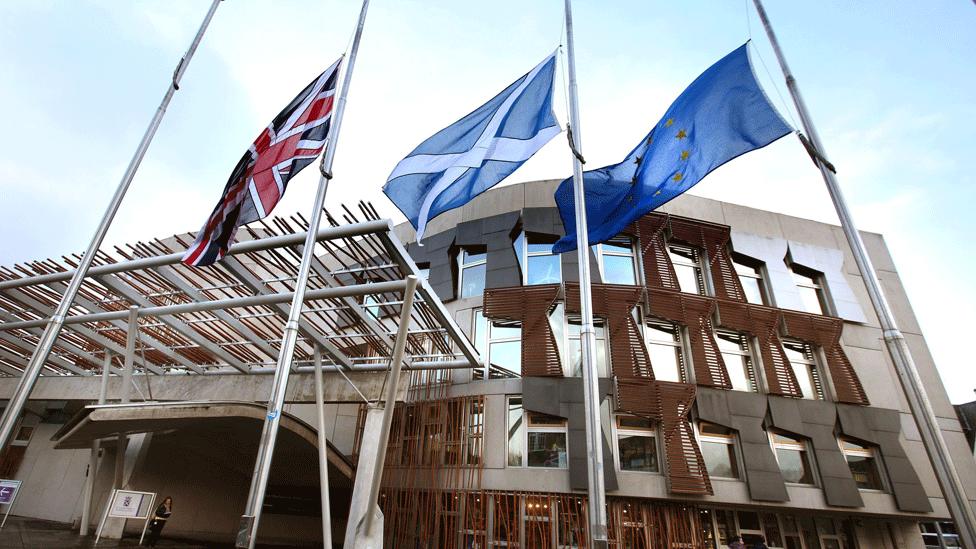
The UK government has pledged to examine fresh devolution in light of Brexit
First Minister Nicola Sturgeon told BBC Scotland that she believed more powers over immigration should be devolved to the Scottish Parliament, as some Leave campaigners suggested would the case during the EU referendum campaign.
She added: "I know there are real concerns about immigration, but the Scottish economy is heavily dependant on people who come to Scotland from other countries.
"If that was suddenly to stop, or be severely restricted, then the impact on our economy would be severe."
The UK government's white paper on Brexit notes that there could be fresh devolution in light of powers being "repatriated" from Brussels.
Highlighting agriculture, environment and transport as potential examples, the white paper says: "As the power to make these rules are repatriated to the UK from the EU, we have an opportunity to determine the level best placed to make new laws and policies on these issues, ensuring power sits closer to the people of the UK than ever before.
"We have already committed that no decisions currently taken by the devolved administrations will be removed from them, and we will use the opportunity of bringing decision making back to the UK to ensure that more decisions are devolved."
The paper says the UK government will "continue to champion devolution", but underlined that the final settlement will be one which "works for the whole of the UK".
A UK government spokesman said: "As we leave the EU, we must face the future together as one United Kingdom.
"We're clear that we want protect the status of EU nationals already living here, and the only circumstances in which that wouldn't be possible is if UK citizens' rights in European member states were not protected in return."
- Published2 February 2017
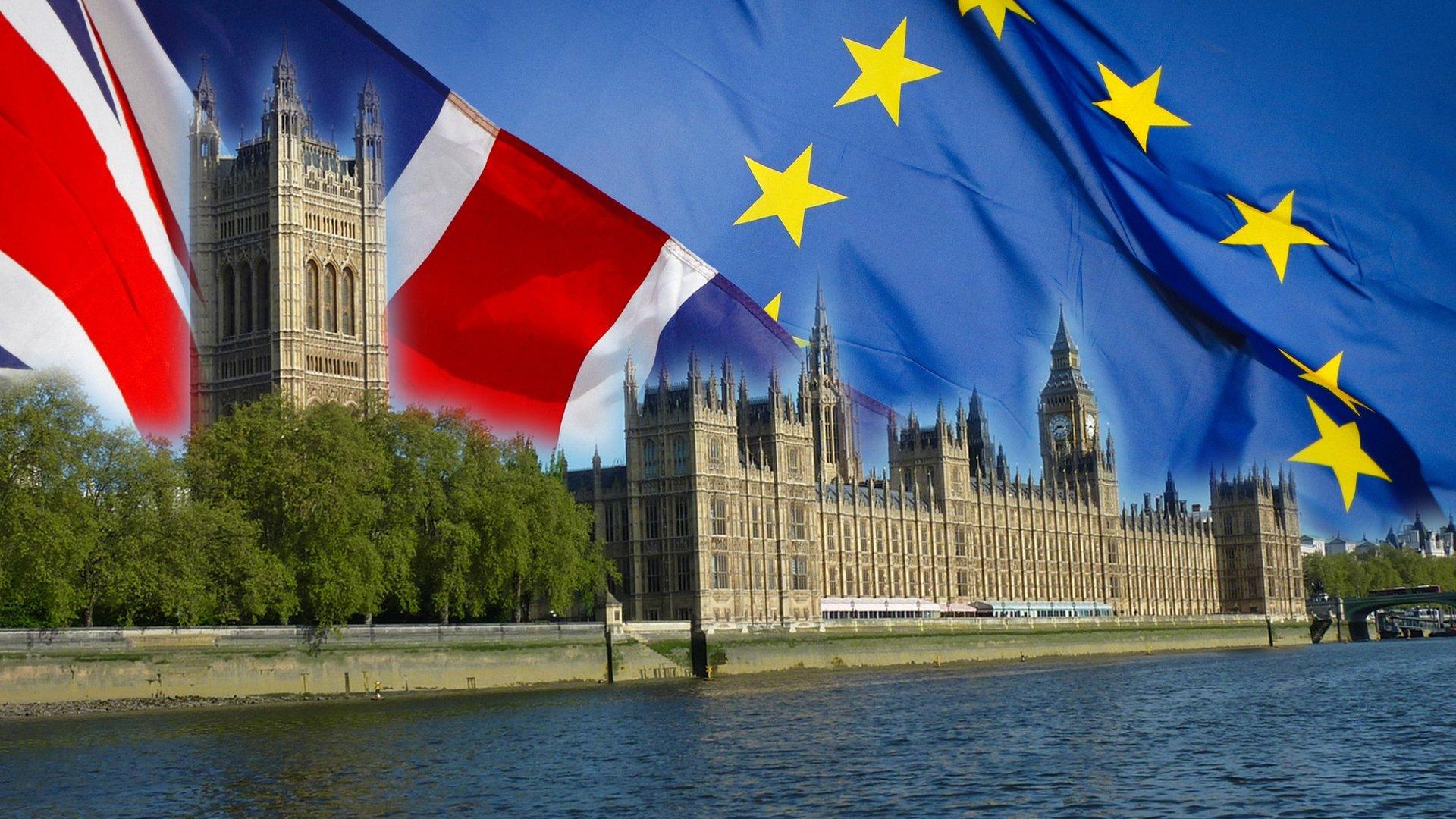
- Published5 January 2017
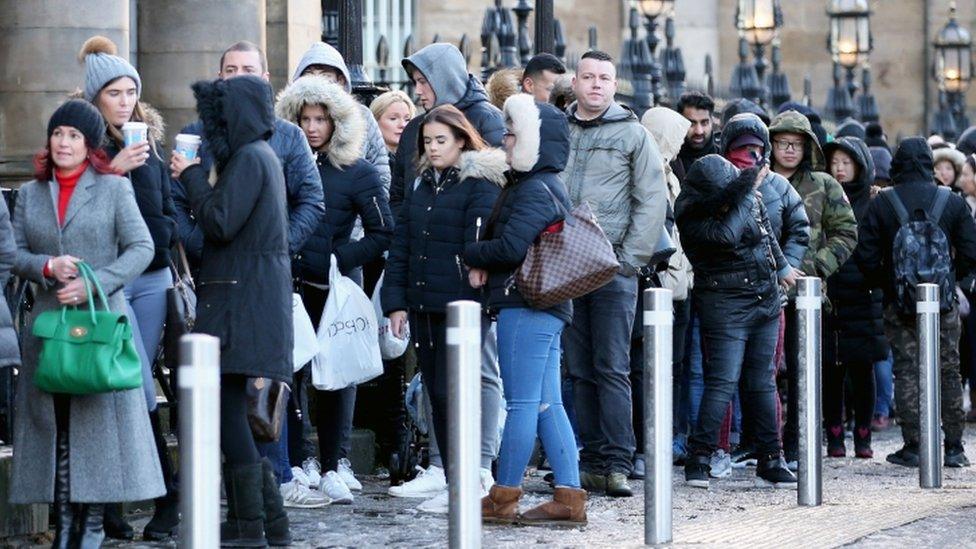
- Published13 June 2016
